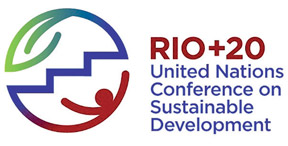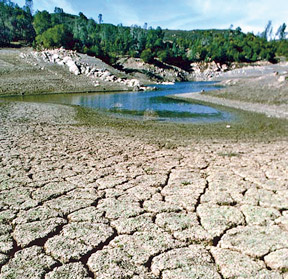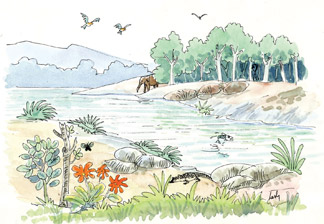|
‘Poverty eradication - greatest global challenge’ -
Part II:
Creating decent jobs and decreasing living standard differences
Text of the final declaration issued by the
world community at the conclusion of the Rio+20 Sustainable Development
Summit recently in Rio de Janeiro, Brazil
Our Common Vision
26. States are strongly urged to refrain from promulgating and
applying any unilateral economic, financial or trade measures not in
accordance with International Law and the Charter of the United Nations
that impede the full achievement of economic and social development,
particularly in developing countries.

27. We reiterate our commitment, expressed in the Johannesburg Plan
of Implementation (JPOI), in the World Summit Outcome of 2005 and the
MDGs Summit of 2010, to take further effective measures and actions, in
conformity with International Law, to remove the obstacles to the full
realization of the right of self determination of peoples living under
colonial and foreign occupation, which continue to adversely affect
their economic and social development as well as their environment and
are incompatible with the dignity and worth of the human person and must
be combated and eliminated.
28. We also reaffirm that in accordance with the Charter of the
United Nations, this shall not be construed as authorizing or
encouraging any action against the territorial integrity or political
independence of any state.
|

Drought, negative effect of global warming |
29. We also resolve to take further effective measures and actions,
in conformity with International Law, to remove obstacles and
constraints, strengthen support and meet the special needs of people
living in areas affected by complex humanitarian emergencies and in
areas affected by terrorism.
30. We recognize that many people, especially the poor, depend
directly on ecosystems for their livelihoods, their economic, social and
physical well-being, and their cultural heritage. For this reason, it is
essential to generate decent jobs and incomes that decrease disparities
in standards of living to better meet people’s needs and promote
sustainable livelihoods and practices and the sustainable use of natural
resources and ecosystems.
31. We emphasize that sustainable development must be inclusive and
people-centred, benefiting and involving all people, including youth and
children. We recognize that gender equality and women’s empowerment are
important for sustainable development and our common future. We reaffirm
our commitments to ensure women’s equal rights, access and opportunities
for participation and leadership in the economy, society and political
decision making.
32. We recognize that each country faces specific challenges to
achieve sustainable development and we underscore the special challenges
facing the most vulnerable countries and in particular African
countries, least developed countries, landlocked developing countries,
and Small Island Developing States (SIDS) as well as the specific
challenges facing the middle-income countries. Countries in situations
of conflict also need special attention.
33. We reaffirm our commitment to take urgent and concrete action to
address the vulnerability of SIDS, including through the sustained
implementation of the Mauritius Strategy for the Further Implementation
of the Programme of Action for the Sustainable Development of Small
Island Developing States and Barbados Programme of Action, and
underscore the urgency of finding additional solutions to the major
challenges facing small island developing states in a concerted manner
so as to support them in sustaining momentum realized in implementing
the Barbados Programme of Action and Mauritius Strategy for
Implementation and achieving sustainable development.

34. We reaffirm that the Istanbul Programme of Action for the Least
Developed Countries for the Decade 2011-2020 outlines LDCs’ priorities
for sustainable development and defines a framework for renewed and
strengthened global partnership to implement them. We commit to assist
LDCs with the implementation of the IPOA as well as their efforts to
achieve sustainable development.
35. We recognize that more attention should be given to Africa and
the implementation of previously agreed commitments related to its
development needs that were made at major UN Summits and Conferences. We
note that aid to Africa has increased in recent years. However, it still
lags behind on commitments that were previously made. We underscore the
key priority for the international community of supporting Africa’s
sustainable development efforts. In this regard, we recommit to fully
implement the internationally agreed commitments related to Africa’s
development needs, particularly those contained in the United Nations
Millennium Declaration, the Declaration on the New Partnership for
Africa’s Development, the Monterrey Consensus of the International
Conference on Financing for Development, the Johannesburg Plan of
Implementation and the 2005 World Summit Outcome as well as the 2008
Political Declaration on Africa’s development needs.
36. We recognize the serious constraints to achieve sustainable
development in all its three dimensions in landlocked developing
countries. In this regard, we reaffirm our commitment to address special
development needs and the challenges faced by landlocked developing
countries through the full, timely and effective implementation of the
Almaty Programme of Action as contained in the Declaration on the
mid-term review.
37. We recognize the progress made by middle-income countries in
improving the well-being of their people, as well as the specific
development challenges they face in their efforts to eradicate poverty,
reduce inequalities, and achieve their development goals, including the
MDGs, and to achieve sustainable development in a comprehensive manner
integrating the economic, social and environmental dimensions. We
reiterate that these efforts should be adequately supported by the
international community, through various forms, taking into account the
needs and the capacity to mobilize domestic resources of these
countries.
38. We recognize the need for broader measures of progress to
complement GDP in order to better inform policy decisions, and in this
regard, we request the UN Statistical Commission in consultation with
relevant UN System entities and other relevant organizations to launch a
programme of work in this area building on existing initiatives.
39. We recognize that the planet Earth and its ecosystems are our
home and that Mother Earth is a common expression in a number of
countries and regions and we note that some countries recognize the
rights of nature in the context of the promotion of sustainable
development. We are convinced that in order to achieve a just balance
among the economic, social and environment needs of present and future
generations, it is necessary to promote harmony with nature.
40. We call for holistic and integrated approaches to sustainable
development which will guide humanity to live in harmony with nature and
lead to efforts to restore the health and integrity of the Earth's
ecosystem.
41. We acknowledge the natural and cultural diversity of the world
and recognize that all cultures and civilizations can contribute to
sustainable development.
C. Engaging major groups and other stakeholders
42. We reaffirm the key role of all levels of government and
legislative bodies in promoting sustainable development. We further
acknowledge efforts and progress made at the local and sub-national
levels, and recognize the important role that such authorities and
communities can play in implementing sustainable development, including
by engaging citizens and stakeholders, and providing them with relevant
information, as appropriate, on the three dimensions of sustainable
development. We further acknowledge the importance of involving all
relevant decision makers into planning and implementation of sustainable
development policies.
43. We underscore that broad public participation and access to
information and judicial and administrative proceedings are essential to
the promotion of sustainable development. Sustainable development
requires the meaningful involvement and active participation of
regional, national and sub-national legislatures and judiciaries, and
all Major Groups: women, children and youth, indigenous peoples,
non-governmental organizations, local authorities, workers and trade
unions, business and industry, the scientific and technological
community, and farmers, as well as other stakeholders, including local
communities, volunteer groups and foundations, migrants, families as
well as older persons and persons with disabilities. In this regard, we
agree to work more closely with Major Groups and other stakeholders and
encourage their active participation, as appropriate, in processes that
contribute to decision making, planning and implementation of policies
and programmes for sustainable development at all levels.
44. We acknowledge the role of civil society and the importance of
enabling all members of civil society to be actively engaged in
sustainable development. We recognize that improved participation of
civil society depends upon, inter alia, strengthening access to
information, building civil society capacity as well as an enabling
environment. We recognize that information and communication technology
(ICT) is facilitating the flow of information between governments and
the public. In this regard, it is essential to work toward improved
access to ICT, especially broad-band network and services, and bridge
the digital divide, recognizing the contribution of international
cooperation in this regard.
45. We underscore that women have a vital role to play in achieving
sustainable development. We recognize the leadership role of women and
we resolve to promote gender equality and women’s empowerment and to
ensure their full and effective participation in sustainable development
policies, programmes and decision-making at all levels.
46. We acknowledge that the implementation of sustainable development
will depend on active engagement of both the public and private sectors.
We recognize that the active participation of the private sector can
contribute to the achievement of sustainable development, including
through the important tool of public-private partnerships. We support
national regulatory and policy frameworks that enable business and
industry to advance sustainable development initiatives taking into
account the importance of corporate social responsibility. We call on
the private sector to engage in responsible business practices, such as
those promoted by the UN Global Compact.
47. We acknowledge the importance of corporate sustainability
reporting and encourage companies, where appropriate, especially
publicly listed and large companies, to consider integrating
sustainability information into their reporting cycle. We encourage
industry, interested governments as well as relevant stakeholders with
the support of the UN system, as appropriate, to develop models for best
practice and facilitate action for the integration of sustainability
reporting, taking into account the experiences of already existing
frameworks, and paying particular attention to the needs of developing
countries, including for capacity building.
48. We recognize the important contribution of the scientific and
technological community to sustainable development. We are committed to
working with and fostering collaboration among academic, scientific and
technological community, in particular in developing countries, to close
the technological gap between developing and developed countries,
strengthen the science-policy interface as well as to foster
international research collaboration on sustainable development.
49. We stress the importance of the participation of indigenous
peoples in the achievement of sustainable development. We also recognize
the importance of the UN Declaration on the Rights of Indigenous Peoples
in the context of global, regional, national, and sub-national
implementation of sustainable development strategies.
50. We stress the importance of the active participation of young
people in decision making processes as the issues we are addressing have
a deep impact on present and future generations, and as the contribution
of children and youth is vital to the achievement of sustainable
development. We also recognize the need to promote inter-generational
dialogue and solidarity by recognizing their views.
To be continued |



